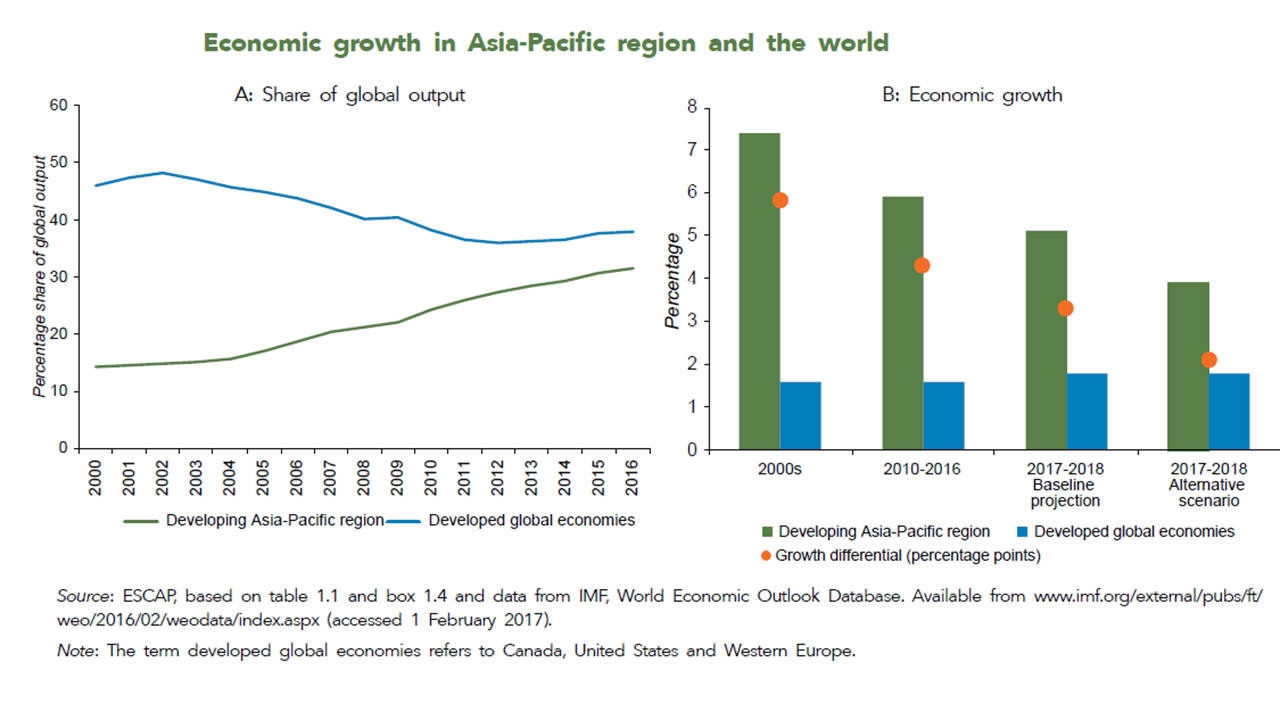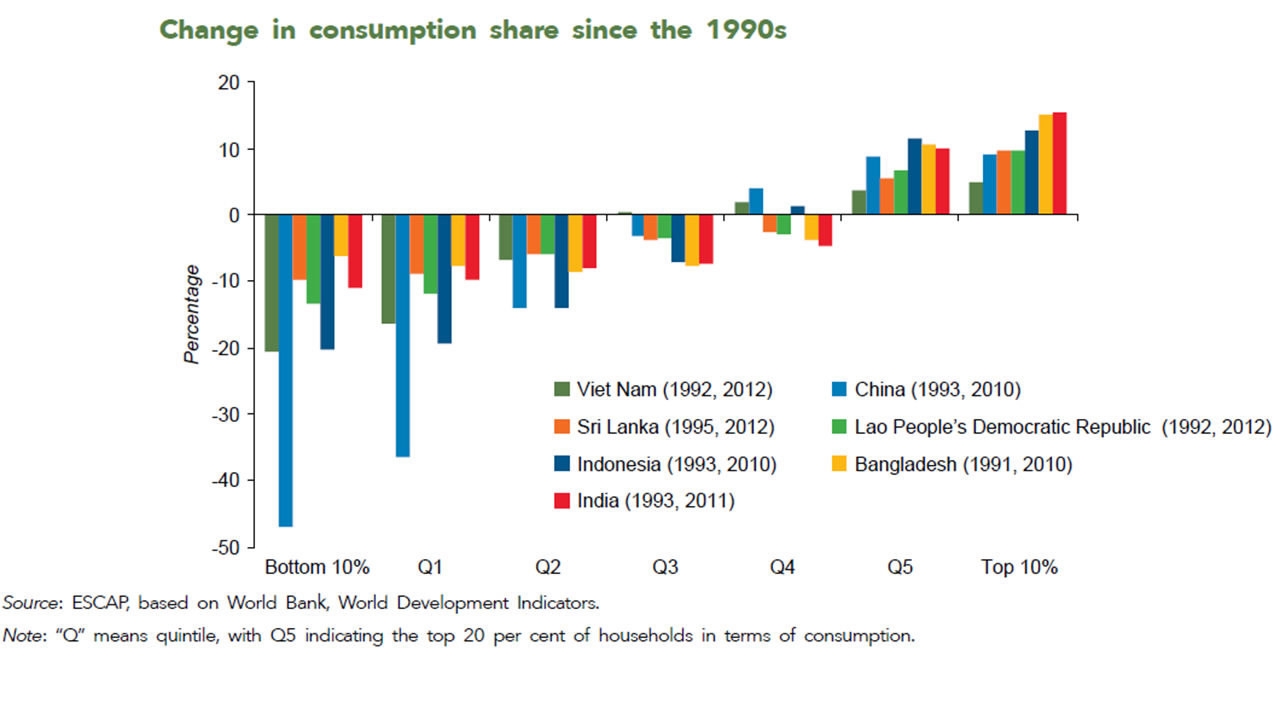By CGTN’s Yan Yunli
The latest economic and social survey released by the United Nations finds that Asia would account for more than half of global output by 2050, if countries in the region continue to outpace global economic growth at their current rates. The survey also mentioned that China’s role as an originator and transmitter of shocks within the region has increased.

Economic growth in the Asia-Pacific region and the world. /Source from Economic and Social Commission for Asia and the Pacific
Based on the Economic and Social Survey of Asia and the Pacific 2017, the region's developing economies now account for a third of the world's output. In 2016, economic conditions in the region began to stabilize, with a better-than-expected performance exhibited by China and with a recovery underway among net commodity exporters.
Across the region, domestic private consumption has been the major driver of growth amid weak external demand and global trade. In China, the contribution of consumption to overall growth edged up, indicating progress in the re-balancing of the economy.

Change in consumption shares since the 1990s. /Source from Economic and Social Commission for Asia and the Pacific
Meanwhile, economic growth is expected to be slightly more broad-based in 2017 and generally stable at about 5%. However, global policy uncertainty and trade protectionism are major downside risks. According to the survey, bouts of financial volatility are also likely, with tighter global financial conditions.
Investment performance was generally weaker in most countries in the region. But that was not the case in China where investment growth was relatively stable in 2016.

Investment in China. /Source from Economic and Social Commission for Asia and the Pacific
The reason was partly due to large public infrastructure outlays in China. Infrastructure investment grew nearly 20%. And the high tech manufacturing sector expanded at a relatively healthy pace, which was in line with the government’s policy to foster innovation-led growth and support higher value-added sectors.
Shamshad Akhtar, an Under-Secretary-General of the United Nations and the Executive Secretary of the Economic and Social Commission for Asia and the Pacific, believed that future economic growth will need to rely more on productivity gains which in turn, require effective institutions and better governance in both public and private spheres.









